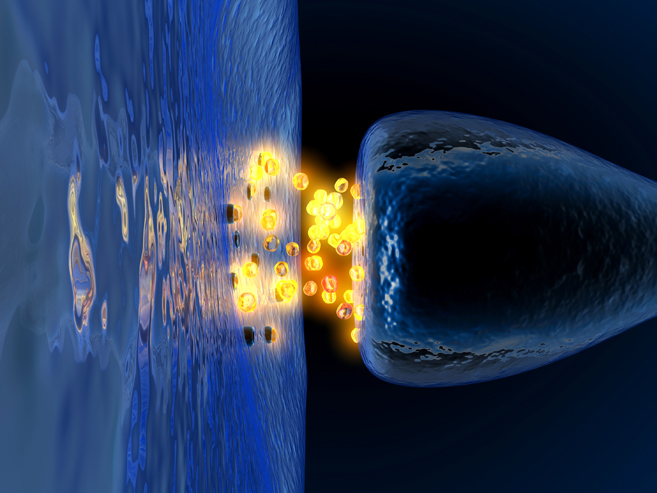A research team at the University of Bristol have been investigating one of the most elusive mysteries in all of brain science — the unfathomably complex chemical processes that underpin how brain cells co-ordinate their communication. Defects in this communication are associated with disorders such as epilepsy, autism and schizophrenia. The researchers recently made a breakthrough discovery in how the brain’s neurons release neurotransmitters, the chemicals in charge of communication between cells.
Neuroscience Research Techniques writes: “The release of neurotransmitters by neurons, to coordinate communication between them, is tightly controlled by many proteins within the cell. Scientists at the University of Bristol in England have identified one of the proteins that plays a key role in controlling neurotransmitter release. The work published in Cell Reports, describes the interaction of the RIM1a protein with the SUMO protein that acts as a molecular switch and controls normal neurotransmitter release. Given that problems in neurotransmitter release and neural communication have been linked to a variety of conditions, from autism to schizophrenia to epilepsy, these findings could help with the development of potential new therapies.”
You can learn much more about the discovery by visiting Bristol.ac.uk, and follow Neuroscience Research Techniques on Facebook. For more great stories about the human brain be sure to visit The Human Brain on FEELguide.


